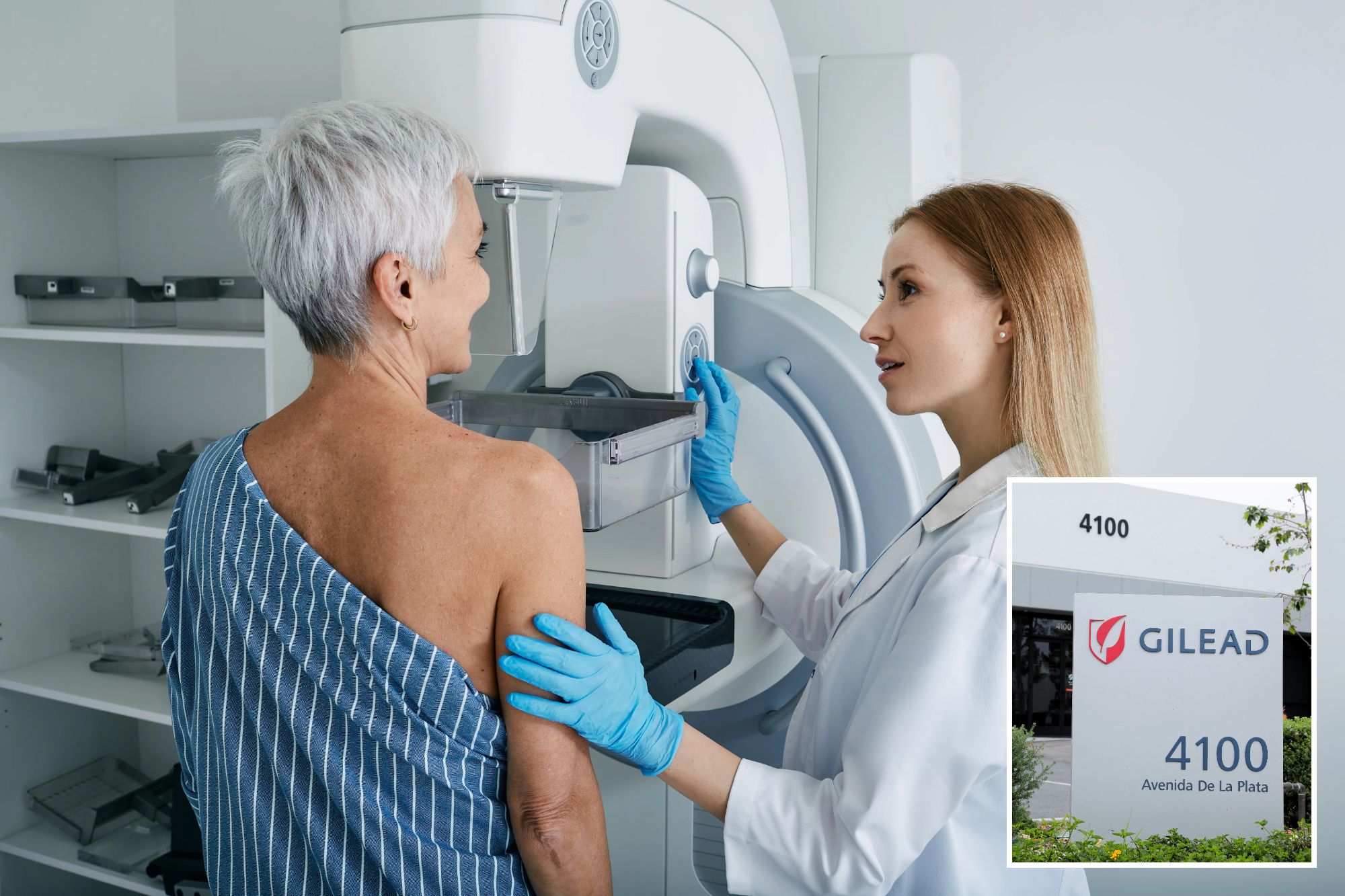Trodelvy, in combination with Merck Blockbuster immunotherapy, Keytruda reduced the risk of an aggressive type of breast cancer that worsened 35% when used as an initial treatment, according to the results of a large trial presented on Saturday.
The data is likely to change the way patients are treated after a diagnosis for advanced triple -negative breast cancer, said an expert.
After an average follow-up of 14 months, patients treated with Trodelvy, a so-called combination of antibodies-medications and Keytruda spent 11.2 months without their cancer moving forward, a measure known as progress-free survival. This compared to PFS of 7.8 months for which the standard treatment of chemotherapy and Keytruda were given, the researchers said.
Patients donated to the Trodelvy/Keytruda combination responded to the treatment for a 16.5 months median, compared to 9.2 months for the Quimio group, according to the full results of the study presented at the American Society of Clinical Oncology Scientific Meeting in Chicago. Researchers said patients are still followed to see if the regime has an impact on global survival.
Gilead said previously that the study of phase 3 in 443 patients with advanced triple breast cancer whose tumors express pd-L1 protein directed by drugs such as keytruda-had fulfilled their goal.
The findings suggest that the combination of Trodelvy and Keytruda “will probably become a new standard of front -line care in this environment,” said Dr. Jane Lowe Meisel, an oncology co -director of the Emory University School of Medicine University, and an as -as expert designated by ASCO, in a statement.
ASCO estimates that about 10% of breast cancers in the United States are triple negatives.
This is usually harder to try than hormone sensitive subtypes, because it does not have the common biomarkers used to guide treatment, tumors are often larger and the recurrence rate is high.
The medical group said that about 40% of triple breast cancers are also positive PD-L1, making them candidates for Keytruda.
Antibodies like Trodelvy are designed to deliver a more accurate cancer drug to malignant cells, causing less damage to healthy cells than chemotherapy.
The serious side effects for Trodelvy included neutropenia, a disease caused by cancer treatments that decrease white blood levels to fight the infection, reported in 43% of patients and diarrhea by 10%. In the chemotherapy group, the incidence of neutropenia was 45%, while 16% of patients had anemia and 14% had a low counting of blood plates.
Trodelvy is already approved for patients with advanced triple breast cancer, which had two or more previous therapies, and for HER2-NEGATIVE METASTIC-NEGATIVE MAMA Cancer.
Gilead carries out several Trodelvy studies, including a drug trial as an initial treatment for patients with triple breast cancer that do not express PD-L1.
#risk #reduced #breast #cancer #clinical #trial
Image Source : nypost.com
